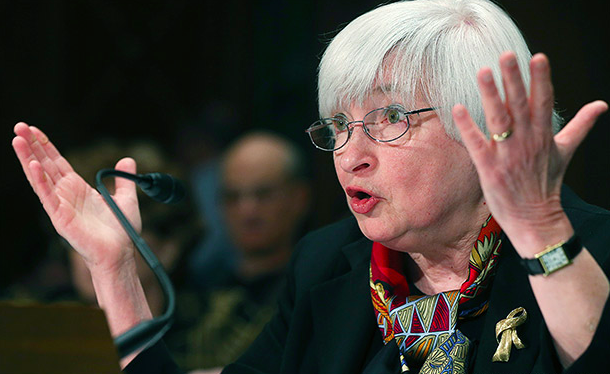|
According to Zillow, 2021 U.S. homeowners made more money on average from home appreciation than the median worker earned from their job.
The average U.S. home climbed 19.6% in 2021 to $321,634, a $52,667 increase since 2020, mostly thanks to record low mortgage interest rates and an ongoing housing crisis that kept real estate in high demand. So is that why everyone is quitting their 9-5 jobs these days?? ...Or something like that.
After two years of being spoiled by record-low interest rates, they're finally starting to creep back up, thanks to the Fed's attempt to tame the beast that is inflation. In just one month, rates jumped half a point from 3.11% to 3.64%. That's the largest one month jump we've seen since December 2013! On a $1M loan, the difference in rates equate to a $300 increase in monthly mortgage. As if the market wasn't challenging enough for buyers to get into these days. So how will this affect the housing market? Simply put: The higher mortgage rates go, the more bearish the outlook for home price growth. A more nuanced perspective: "The impact of rising interest rates depends on where they land. If rates approach 4% before the end of the year, there will be a notable downshift in housing demand. If mortgage interest rates gradually rise throughout the year, allowing home sellers to price their homes accordingly, then the shock to the system will be less noticeable." Low interest rates, housing shortage, everyone working from home, etc etc etc., all of which came together to create the perfect storm for another record-breaking year in real estate. Here are the new housing records set in 2021.
Cheers to the new year with a more balanced housing market! Hopefully. Demand for housing has continued to rapidly grow throughout 2020, and it is only expected to surge even further as economies reopen in 2021. Zillow predicts that annual home sales will reach their highest since the 1980s, forecasting nearly 22% growth.
They also believe that city living will make a comeback next year, especially as the vaccine becomes more widely available to the general public. While a lot of young adults moved back in with their parents this year to save money, it is likely that once the economy bounces back, they will be moving back into big urban areas in droves. (Does that mean the sad SF condo market will finally make a comeback??) Zillow also expects that buyers will continue having a hard time affording homes, particularly if mortgage rates start to increase in 2021 and housing prices remain high. At the same time, if rates are indeed predicted to rise later in the year, this may cause an even bigger buyer frenzy for those looking to lock in low rates ASAP. Sadly there seems to be no end in sight for bidding wars. :( After a brutal couple months (which equates to 250937 days in corona years), stats show that the housing market could actually be leading the economy's recovery. Mortgage applications rose to an 11-year high. Interest rates are at all-time lows. Average home prices across the country hit a record high of $365k. Buyers are like, what pandemic?
Americans' home-spending habits aren't changing as drastically as they have during past recessions, showing that people are confident that this too shall pass and the economy will get back on track. 8.5 out of 10 experts agree: the economy will begin to recover in the second half of 2020. Which is pretty much like, right now. Why is everyone betting on the strength of the housing market?
While this data might be comforting to some, others are concerned about rising home prices and the widening gap in affordable housing. Home prices have gone up faster than most people's incomes, and the pandemic is only accelerating that trend. It remains to be seen what will happen long term (mostly because the crystal ball everyone pretends to have doesn't exist), but for now, it looks like our economy is slowly but surely on its way to recovery. Remember when interest rates hit a recent low of about 3.29% a few weeks ago? Well, lots has happened since then. With that drop came a rush of homeowners wanted to refinance their existing homes. Lenders got so overwhelmed that they controlled the sudden influx of refinances by shooting rates back up, and it's been a rollercoaster ride for rates ever since.
The Fed then announced that it would buy back $500 billion in U.S. Treasury bonds and $200 billion in government mortgage-backed securities. I know--what does that even mean?? In layman's terms, this move should help stabilize rates and keep them low. They're already back to 3.5% as of this week! In hopes of protecting the economy from this whole coronavirus fiasco, the Fed just slashed interest rates this week and they are now at a record low of 3.29%!
To put it into real-life terms, a $600k loan at today's 3.3% rate vs. last year's 4.5% rate saves you close to $412 a month for the next 30 years. That's like 537 additional rolls of toilet paper each month until you're retired! (Do the math here if you want to calculate your own financial situation and how much uninterrupted bathroom time you can afford.) But here's the catch: we can’t predict how long this will last. If this whole virus outbreak craze levels off soon, rates would likely bounce back up. On the other hand, if the outbreak continues to spread, it could drive rates down even further. It’s all unpredictable at this point, so you may want to lock in a solid rate now for buying or refi, juuuuust in case they creep up again. Lmk if you need a lender! Thanks to rising home prices, conforming loan limits just got a boost. Compared to last year's loan limit of $726,525, most of the Bay Area can now borrow up to $765,600 with a mortgage backed by my two favorite F-words........Fannie and Freddie, duh (what did you think I was going to say?). This means that buyers can now enjoy more purchasing power before going into the more restrictive jumbo loan territory, leaving everyone looking for a home priced near that cutoff point saying F YEAH!
In 2017, Business Insider writer Sam Dogen (also renowned author of my favorite finance and real estate blog Financial Samurai) became a stay-at-home dad after he sold his SF rental property for $2.75 million, leaving him with a $1.8 million profit after paying off the mortgage, taxes, and fees. Umm, can we say GOALS? Now a couple years later, he wants to buy property in SF again. Why now, you ask? (Or maybe you didn’t ask and I’m gonna tell you anyway?)
Well, Dogen says property prices in the US have softened and mortgage rates have collapsed. All while rent prices continue to rise! Plus he thinks the fact that 2020 is an election year, the stock market is thriving AF, and the amount of foreign buyers has dramatically decreased, all point to now being a good time to start looking into purchasing. He listed about 87** other reasons if you’re interested in reading all of them (**ok fine slight exaggeration, but honestly, there were a lot and they were all pretty convincing). *Disclaimer: Every economist, journalist, and psychic will have varying degrees of optimism and pessimism about where the housing market is going—up, down, all around. If you want to compare different points of view and form your own educated prediction, here are a few other market forecasts to satisfy your inner nerd: Realtor.com, Redfin, Forbes, Freddie Mac, and Zillow. Janet, as in Janet Yellen of the Federal Reserve (see confused lady pictured above for reference). Stockholders, homebuyers, and finance nerds everywhere are biting their nails and on the edge of their seat as they brace for the Fed's next policy meeting on March 15-16th. This is when the Fed will decide whether to hike short-term interest rates again after raising rates in December off zero for the first time since the 2008 financial crisis.
Many were hoping for an oil production cut to serve as a catalyst for higher stock prices, but that idea has been nixed for the time being. The confidence that rate hikes will be put on hold also helped the stock market rebound since the recent mid-Feb low. To keep the country in suspense, the Fed said on Tuesday night that they "simply do not know" if they will hike rates or not. Investors want the economic data (on GDP, personal income and spending) to show evidence of a perfect middle ground - that a recession isn't looming, and at the same time, that the economy isn't heating too much either. Until then, the market continues to be at the mercy of oil prices and Janet. |
Michaela ToAll things real estate. Categories
All
Archives
April 2022
|



